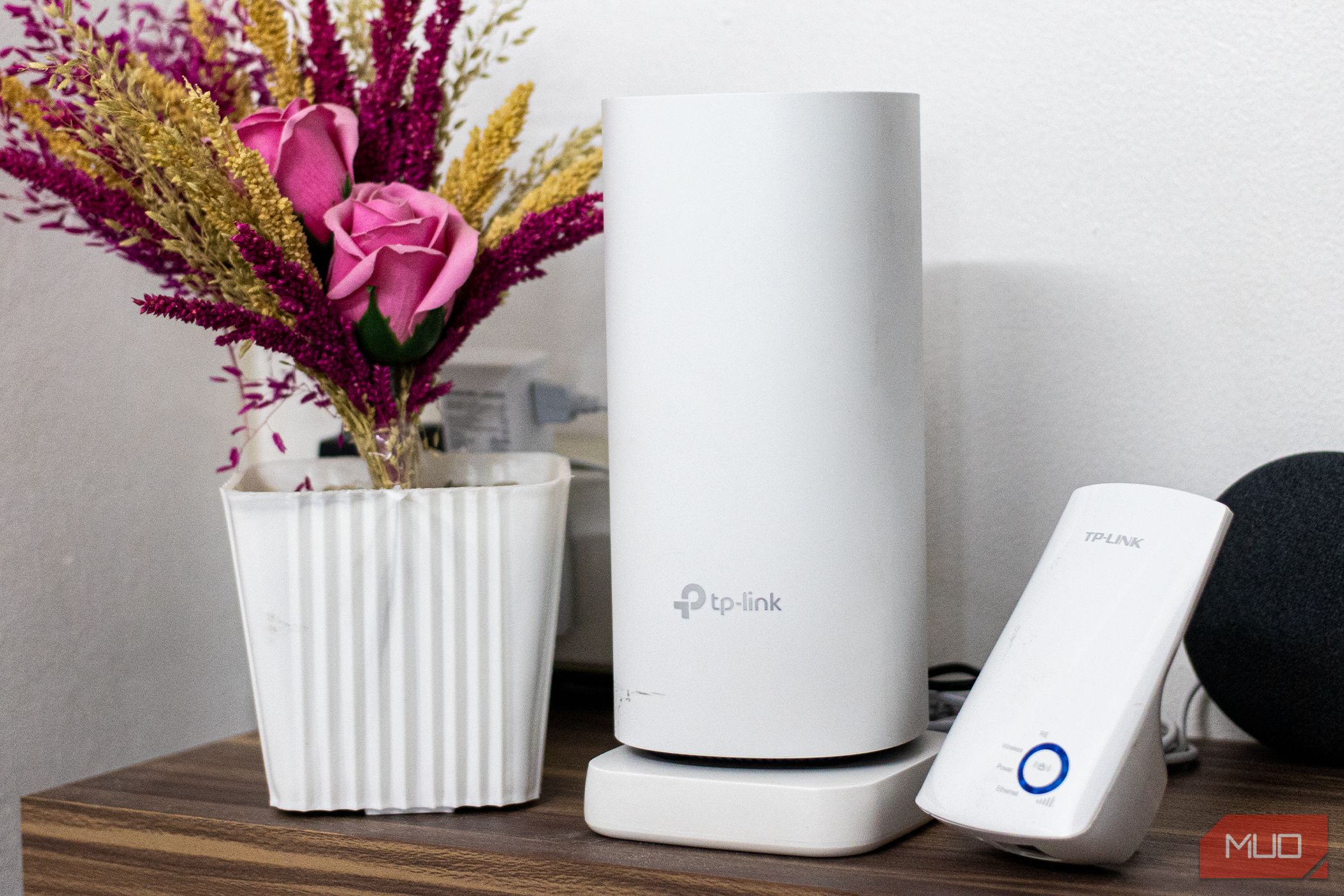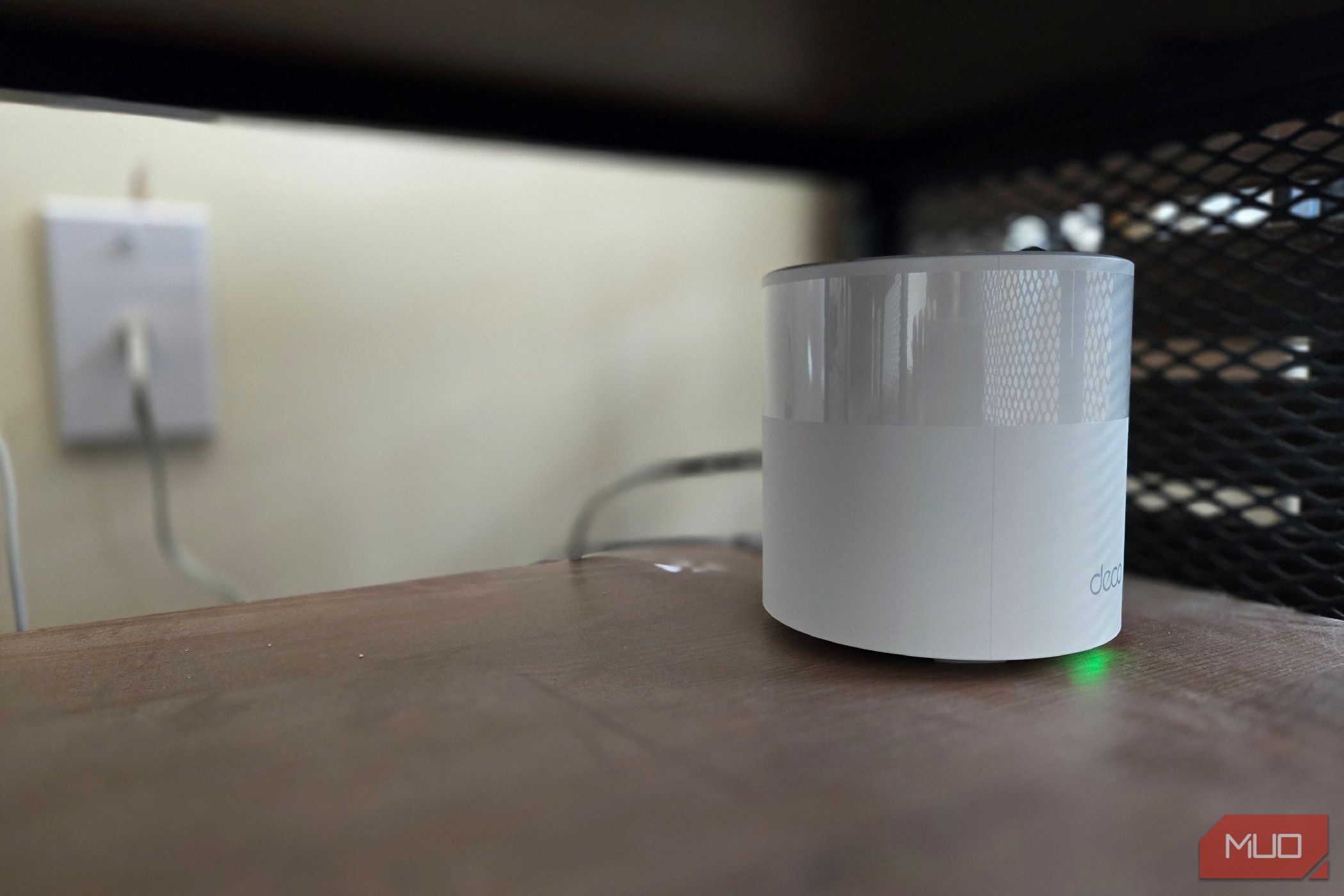Summary
- Mesh WiFi isn’t a cure-all for dead zones and speed issues and may be costly compared to other options.
- Placing WiFi nodes requires careful consideration to get the best signal strength.
- Mesh WiFi doesn’t necessarily guarantee faster internet speeds; it’s more about extending coverage.
Mesh Wi-Fi promises to extend the range of your network beyond that of a traditional router. If you have a big house, it might seem like the perfect solution. But is a mesh network all it’s cracked up to be?
Mesh Wi-Fi Isn’t a Silver Bullet
I hoped using mesh Wi-Fi would eliminate dead zones, reducing lag and instability. And it did, for the most part. Once everything was set up, I saw significant improvement when using devices around my home and even outside.
You may, however, still encounter speed issues as the signal “hops” from node to node. Combine that with concrete floors or thick walls, and you might find that the signal you end up with is much weaker than you hoped.
Older Devices Don’t (Always) Like Mesh Wi-Fi
Some devices, particularly older pieces of kit, can struggle with a mesh network, such as if they’re on the borderline between two nodes. Plus, some of the best mesh networks prioritize 5GHz Wi-Fi, which can create issues for devices that rely on 2.4GHz.
Then again, that might be just the push you need to upgrade some of your older devices.
Placing Wi-Fi Nodes Can Be Tricky
Ever wandered around your house, Wi-Fi router in hand, trying to find the best place to put it? Now imagine that with several similar devices. Successful setup requires a fair bit of fine-tuning as you try to balance distance and signal strength.
Check the manufacturer’s instructions and maybe a few stories from people who have set up similar networks to get an idea of how to space out mesh Wi-Fi nodes and some of the best locations to place them.
Many providers, like Google and eero, offer the functionality to check the connection quality between nodes using their respective apps.
I Bought Too Many Wi-Fi Mesh Nodes
When painting a house, it’s usually better to order more paint than you think you’ll need. It’s safer to err on the side of caution, but in the case of a mesh network, doing so can result in you ending up with extra nodes that you don’t really need.
While you probably don’t need to go as far as digging out your home’s blueprints, think about how many rooms require nodes before ordering. Because, trust me, the resale market for loose nodes isn’t great.
Mesh Wi-Fi Wasn’t as Fast as I Hoped
If you’re turning to mesh Wi-Fi because you hope it’ll result in faster internet speeds, then you may be disappointed, as the speed of your connection is still limited by the package you have from your ISP. Be sure to sift through any paperwork outlining the maximum connection speed in your contract before committing to mesh!
The point of a mesh network is to extend coverage, not improve speed. And while you might see an indirect speed improvement if you’re used to working from an attic room a long way away from your router, for example, it shouldn’t be the main aim.
Perhaps the biggest disadvantage of mesh Wi-Fi not already mentioned is its prohibitive cost. You might be able to accomplish what you’re trying to do with a traditional router and a plug-in extender. As well as being more cost-effective, it’s easier to set up a Wi-Fi extender if you’re concerned that you might not be tech-savvy enough to fine-tune mesh Wi-Fi.
Despite all of the above, I don’t regret my foray into the world of mesh Wi-Fi networks. I have a long house with devices all over the place, and after an admittedly fiddly period of setting everything up, mesh Wi-Fi has solved some of my problems.



